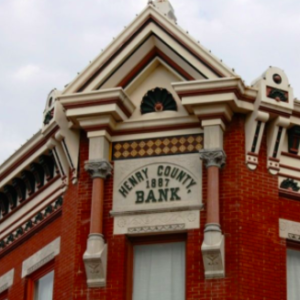“How are things going?”
It’s a question we’re asked a lot lately. Friends, colleagues and family members check in as we experience a pandemic not enough of us were prepared for. How’s working from home? Do you still have a job? Answers vary, but one thing remains the same: No one knows what the future holds.
Our lenders have been working long days — midnight emails are no longer an anomaly — and through the weekend to process Paycheck Protection Program (PPP) loan applications and understand the ins and outs of a trillion-dollar stimulus package that was rolled out in a matter of weeks.
But we’re happy to do it.
This is a moment that’s bigger than us, and our chance to “serve our country” during a time of unprecedented economic need. I’m proud of my team. And my pride is heightened by the fact that we’re making these loans as a billion-dollar asset, community bank.
Small banks around the country have stepped up to take on PPP loans. A recent article from Fortune lists numerous regional banks that are accepting applications. In fact, these smaller institutions outnumber the larger ones on Fortune’s list.
Why is this important? Because people need to realize the vital role that community banks continue to play in our lives, notwithstanding the fact that we’ve evolved into a more digital landscape that’s often seen as a threat to smaller financial institutions.
Community banks are engaged in their community and their bankers personally know the business owners that they lend to. Our clients are our neighbors, and we want to see our community thrive. By funding a local organization, we’re putting money back into our neighborhoods, not in the hands of major corporate interests that aren’t representative of our community.
People may tire of the we-offer-personal-service trope, but it’s true.
By processing hundreds of loan applications through the PPP, Sunrise Banks is also sticking to its mission of empowering financial wellness. A mission-driven ethos is easier to execute at smaller organizations, an advantage community banks have over larger competitors.
One more distinguishing factor for community banks is their ability to be entrepreneurial and change up processes and procedures as necessary. We never expected to take on this many SBA loan applications in less than a month, but we successfully adjusted operations to account for the change.
Credit analysts offered to help lenders; our small-but-mighty marketing team created a website in a matter of days; and front-line staffed stepped up to field a myriad of new questions.
As a Community Development Financial Institution (CDFI), Sunrise is also providing help to populations hit the hardest by the COVID-19 recession. CDFIs are committed to providing financial services to low- and moderate-income communities, which have been disproportionally affected by job loss since the coronavirus outbreak.
Early data from the Pew Research Center shows that nearly one-in-four U.S. workers — 38.1 million — are employed in the industries feeling an immediate impact from the COVID-19 outbreak.
These industries, like retail and food service, are disproportionately held by communities of color, which are themselves disproportionately impacted by the virus.
The Community Development Bankers’ Association, the trade group representing CDFI banks, has asked that additional stimulus funding take into consideration CDFIs and their customers, and I second that request. These institutions need additional funding in order to best serve marginalized groups.
If there’s even been a time for community banks to shine, it’s taken place in the last month. I couldn’t be prouder of my team at Sunrise Banks and the numerous other financial institutions striving to do good during this desperate time of need.
There are no doubt questions that still need to be answered, but one thing remains true — we’re in this together. Main street needs us more than ever right now.
Let’s do what we can to help.



